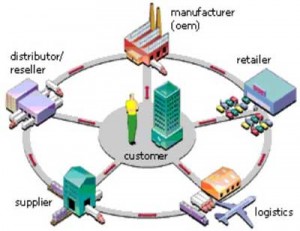
Beyond the Rack, a Canadian company founded in 2009, has experienced great success in a few years
(Source: http://www.strategyeyedigitalmedia.com/article/2012/10/24/beyond_the_rack_lands_usd101m_for_flash_sales/)
Beyond the Rack is a Canadian company that offers limited-time sales on designer apparel. They have been so successful with their operations that they’ve been named the fastest growing e-tailer in North America for 2011, having revenues grow from $6 million in 2009 to $100 million by their third year.
One reason behind their success may be because of their business model, which doesn’t require that they have a lot of inventory on hand. Their supply chain is set up in a way that makes this possible. They don’t purchase from their suppliers until a customer places the order on their website. This business model is great because they don’t have to spend a lot of cash on inventory and allowing them to spend on other areas, such as marketing. However, having a supply chain like this requires careful thinking as one thing going wrong would be detrimental for the entire operation. Although it may take a significant amount of work to initially set up contacts with suppliers and figure out the logistics, the long-term payoff potential is huge, as the company has seen.
Link to article here.




